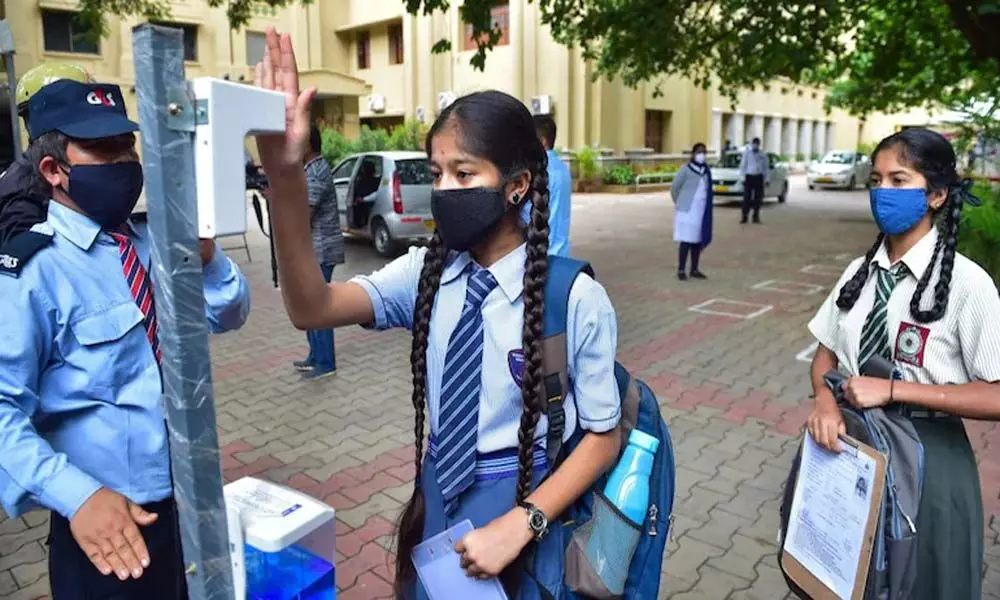Is this the right time to reopen schools in India?
Even as the debate over whether to reopen schools and other educational institutes continues amid fears of the third wave of Covid-19, organisations like Unicef and others have started advocating and strongly urging re-opening of the schools-albeit with appropriate safety protocols and risk mitigation measures.
image for illustrative purpose

Even as the debate over whether to reopen schools and other educational institutes continues amid fears of the third wave of Covid-19, organisations like Unicef and others have started advocating and strongly urging re-opening of the schools-albeit with appropriate safety protocols and risk mitigation measures. And that's not without reasons.
For the record, in India alone, most schools have remained closed for more than 17 months since March 2020, which, in turn, has affected over 247 million children - leading to a huge learning loss, missing of hot cooked meals affecting nutritional levels, adverse impact on physical and mental health, and increasing risk to abuse. There are also reports of rise in cases of child labour and child marriages. Children's ability to read, write and do basic mathematics has suffered as well. In addition to the digital divide, studies also suggest that remote learning is difficult for children in many places.
Little wonder, therefore that many concerned individuals and organisations have started raising their voices in favour of what they aptly call 'safe re-opening' of schools. Mind you that most of the scientific studies suggest that children have a seemingly low infection and susceptibility rate to transmit the virus. Therefore, schools can actually be safer environments for children than being out-of-school, if safety protocols are adequately maintained.
Interestingly, it is not a problem peculiar to India. Schools across the world were fully closed for an average of 79 teaching days in 2020. However, for 168 million students, after the pandemic began, schools were shuttered for nearly the entire year.
Even now, many children are facing an unprecedented second year of disruption to their education. The associated consequences of school closures – learning loss, mental distress, missed vaccinations, and heightened risk of drop out, child labour, and child marriage – will be felt by many children, especially the youngest learners in critical development stages. While most of the countries across the globe are taking some action or the other to provide remote learning, at least 29 per cent of primary students are not being reached, thanks to lack of proper infrastructure, lack of technological back-up in far-flung areas, lack of proper environment, lack of proper support to teachers, so on and so forth.
On top of these, consider what a recent Unicef report points out. A child's first day of school - a landmark moment for the youngest students and their parents around the world - has been delayed due to Covid-19 for an estimated 140 million young minds, it suggests.
What is equally alarming is that in a recent report the World Bank has estimated a loss of $10 trillion in earnings over time for this entire generation of students. Existing evidence shows the cost of addressing learning gaps are lower and more effective when they are tackled earlier, and that investments in education support economic recovery, growth and prosperity.
It is high time, therefore, for the policy makers to strike a balance between the healthcare risks and these other losses associated with keeping the schools closed. Keeping schools closed for a longer period can't be a solution, for sure.

